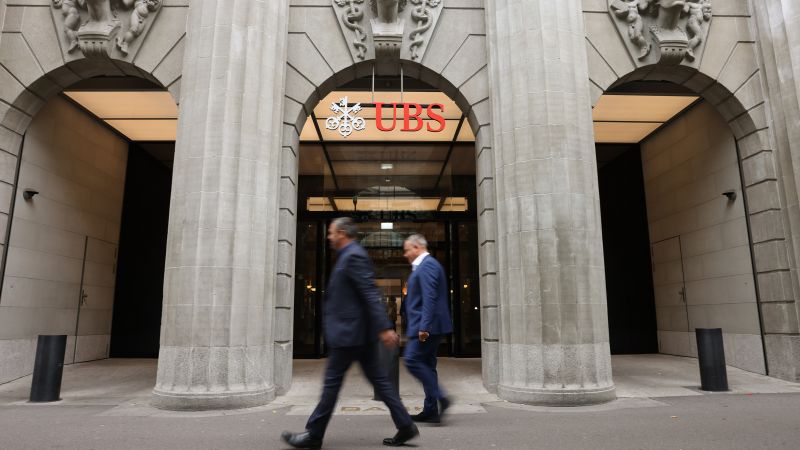UBS made a hefty loss in the first full quarter since it closed a deal to rescue Credit Suisse, highlighting the scale of the challenge the bank faces as it absorbs its stricken rival.
The Swiss lender reported a net loss of $785 million for the June-to-September quarter Tuesday, partly driven by costs tied to the deal, which came in at $2 billion.
Those expenses are likely to decrease in the coming months as the integration progresses, according to UBS (UBS). But tackling the years-long deterioration in Credit Suisse’s business that brought it to the brink of collapse, while costs remain high, will prove difficult.
“Credit Suisse is structurally loss-making,” UBS CEO Sergio Ermotti told reporters, saying the state of the bank is “in general less positive” than he had expected. “I’m still confident that the outcome will be good,” he added.
Ermotti was brought back to helm UBS through its takeover of Credit Suisse within days of the deal, orchestrated by the Swiss government, being announced in March. He is set to unveil a growth strategy for the bank in February.
Despite the third-quarter loss, shares in UBS gained 4% in Zurich, as investors cheered a strong inflow of funds from clients, a sign of confidence in the group.
UBS saw $22 billion of net new money flow into its global wealth management business, as it gained new clients and won back assets from those who had pulled funds immediately before and after the emergency takeover. That figure includes flows into Credit Suisse’s wealth management unit, which turned positive for the first time in 18 months.
Across the group as a whole, UBS attracted net new deposits of $33 billion, with two-thirds of that coming from legacy Credit Suisse clients.
“Our clients have continued to place their trust and confidence in us,” Ermotti said in a statement. “We are optimistic about our future as we build an even stronger and safer version of the UBS that was called upon to stabilize the financial system in March and one that all of our key stakeholders can be proud of.”
Among the most immediate challenges facing UBS is retaining its most talented employees amid the uncertainty surrounding the integration and a cost-cutting drive that will see the bank shed 3,000 jobs in Switzerland alone.
Headcount is already down 13,000 this year, taking the combined group’s full-time staff just below 116,000. Those numbers include job cuts and employees who left voluntarily.
“It goes without saying that we may have lost some people that we would have preferred to keep,” Ermotti said, but added that there is “plenty of good talent” across both UBS and Credit Suisse.
UBS expects to generate more than $10 billion in savings from the integration by the end of 2026. It reported a net profit of $29 billion for the second quarter, largely as a result of the difference between the knock-down price of $3 billion it paid for Credit Suisse and the value of the failing lender’s balance sheet.
UBS made a pre-tax loss of $255 million in the third quarter. Stripping out costs related to the Credit Suisse integration, it recorded an underlying profit before tax of $844 million.
“UBS reported another good quarter in our view,” Deutsche Bank analysts Benjamin Goy and Sharath Kumar wrote in a note Tuesday. “Net new inflows continued across businesses… the cost reduction is ahead of plan, as was the underlying quarterly profit.” They reiterated their call for investors to buy the stock.
Read the full article here




